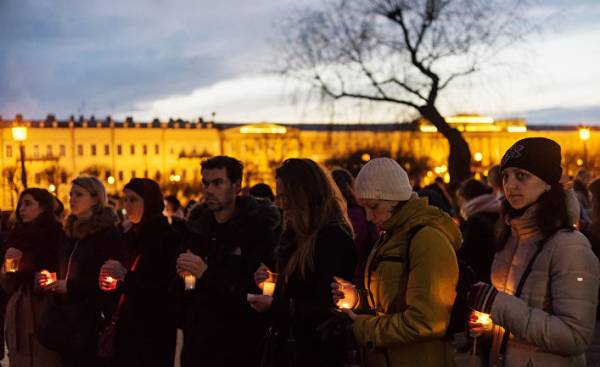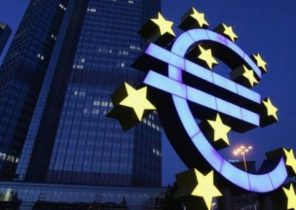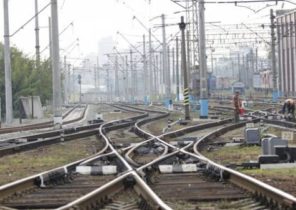
At the end of March — London, this week — St. Petersburg. Terrorists operate continuously, the nightmare has no end. Insidious attacks of the extremists not only affect the people’s sense of safety, they increasingly become a risk to economic life, and in a global scale. Along with civil wars such as in Syria, and other military conflicts, terrorism leads to a deadly balance: the past years were the bloodiest in the modern history of mankind.
“Worldwide we are seeing the growth of political risk,” says economist Mario Jung (Jung Mario). Along with his colleagues, he analyzed data from 159 countries and was the index of political risk. It is not only humanitarian issues but also on economic planning.
They built the index for the loans insurer Coface, which advises businesses when making their investment decisions. For a country-exporter, as the Federal Republic of Germany, the assessment of such hazards is essential. In foreign transactions, businesses need security.
Danger because of wars and terrorism
“The political risks are of great importance for the national economy and enterprises. Risks to security directly affect the business activity of the enterprises,” says Jung. This index takes into account risk due to wars and terrorism, and the possibility of political and social instability. In a global perspective the world is a powder keg.
According to Coface, the number of armed conflicts from 2007 to 2015 has doubled. A particularly grave situation is observed in the case of international terrorism. “The growth of terrorism risk by 2.8 times from 2008 can only be described as dramatic,” says Jung. Well-being is also threatened by authoritarian tendencies, manifestations of the divided society and populism.
Especially rapidly the situation deteriorated in Turkey: Erdogan belongs, according to a new risk index, 26 the most dangerous countries in the world. Researchers estimate this country on the Bosphorus risk factor in as many as 59,8%, and 100% means extremely high political risk, and zero is the opposite. Turkey is now closely approaching 60%, which means “very high political risk.”
Public order on the verge of collapse
“The country is experiencing a worsening security situation both in domestic and in foreign policy,” says Jung. The Turkish state is a terrorist the grip between LIH (organization banned in Russia — approx. transl.) and the Kurds. The fact that Erdogan showed the vanity and began to participate in military operations in Syria does not facilitate business. With regard to the terrorist risk, the Turkey reaches even extreme opinions are 100%.
In risk categories higher than Turkey are countries such as Russia and Mexico. To even higher risk category include only States where there is a war or civil war and where social order is on the verge of collapse.
The most dangerous countries in the world are in this sense Afghanistan, Iraq, Libya and Nigeria. The least exposed to risk and therefore the most stable countries are island Nations: Iceland and New Zealand. Japan with its homogenous society also looks good. Germany takes place from the edge of the middle of the field, although the researchers point out as a negative point that the risk of terrorism in this country has increased markedly.
More and more regions become dark red
In fact, the prospects of firms to make a successful investment and thereby create future well-being, are at variance not only from Africa to the Hindu Kush. And it’s not just terrorism that is increasingly stains on the Atlas region in dark red color. From the experts is, in particular, fears the rise of populism in industrialized countries.
However, the relationship here seen less clearly than in the case of wars and attacks. Partly populism is a reaction to the existing social imbalances, partly it provokes new tensions within society.
“In Western democracies, populist programs are accompanied by increased political risk,” — said Jung. Populism, he said, makes it difficult to take a balanced and consensus-oriented solutions, which is typical for democratic societies. However, it limits the possibility that a Mature democracy would often find mechanisms to limit the damage.
The big danger across Europe
So, the election of Donald trump certainly has led to a surge of populism in the United States. At the same time the system of institutions of the United States creates a buffer zone to partly extreme plans trump. “Blocked attacks in the area of migration and health clearly indicate that there is a working balance of power, even if the White house sits a populist,” says the economist.
Also in Europe it is difficult to discern a clear relationship between populism and the economic downturn. According to scientists, the countries with the strongest populist trends include: UK, France, Austria, the Netherlands and Switzerland.
However, in all these countries, these indicators of market conditions as economic growth or consumer confidence are stable or even improved slightly in recent years. And yet risks remain. The United Kingdom has become since Bracito more divided country than before, only because Scotland doesn’t want to support the policy of the British.







